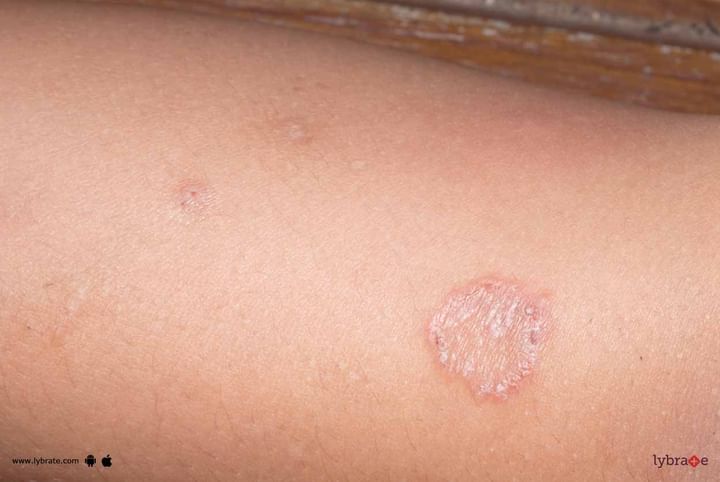Lichen Planus - Everything About It!
What is Lichen Planus?
Lichen planus is a skin rash triggered by the immune system. It’s not known why the immune response occurs. There may be several contributing factors, and each case is different. Potential causes include:
-viral infections
-allergens
-stress
-genetics
Sometimes lichen planus occurs along with autoimmune disorders. While it may be uncomfortable, in most cases lichen planus is not a serious condition. It’s also not contagious.
However, there are some rare variations of the condition that may be serious and painful. These conditions can be treated with topical and oral medications to reduce symptoms, or by using drugs that suppress the immune system.
Causes:
When planus develops when your body attacks your skin or mucous membrane cells by mistake. Doctors are not sure why this happens.
Lichen planus can occur in anyone at any age, but there are certain factors that make some people more likely to develop the condition. The skin form of lichen planus occurs in men and women equally, but women are twice as likely to get the oral form. It’s very rare in children and older adults. It’s most common in middle-aged people.
Other risk factors include having family members who’ve had lichen planus, having a viral disease like hepatitis C, or being exposed to certain chemicals that act as allergens. These allergens may include:
-antibiotics
-arsenic
-gold
-iodide compounds
-diuretics
-certain kinds of dyes
-Other medications
Symptoms:
Some of the most common symptoms of lichen planus include the following:
-purplish-colored lesions or bumps with flat tops on your skin or genitals
-lesions that develop and spread over the body over the course of several weeks or a few months
-itching at the site of the rash
-lacy-white lesions in the mouth, which may be painful or cause a burning sensation
-blisters, which burst and become scabby
-thin white lines over the rash
-The most common type of lichen planus affects the skin. Over the course of several weeks, lesions appear and spread. The condition usually clears up within 6 to 16 months.
Less commonly, the lesions can occur in areas besides the skin or genitals. These may include:
-mucous membranes
-nails
-the scalp
There are also variations of the condition more common in the Middle East, Asia, Africa, and Latin America.
Diagnosis:
Anytime you see or feel a rash on your skin or lesions in your mouth or on your genitals, you should see your doctor as soon as possible. Your primary care doctor may send you to a dermatologist if a diagnosis of lichen planus is not obvious, or if your symptoms are making you very uncomfortable.
Your primary care doctor or dermatologist may be able to tell that you have lichen planus simply by looking at your rash. To confirm the diagnosis, you may need further tests.
Tests could include a biopsy, which means taking a small sample of your skin cells to view under a microscope, or an allergy test to find out if you’re having an allergic reaction. If your doctor suspects the underlying cause is an infection, you may need to have a test for hepatitis
Role Of Homeopathy In Lichen Planus:
Homeopathic treatment for Lichen Planus involves getting the complete and detailed information from you about your Lichen Planus eruptions and coming to customised Homeopathic medicines for Lichen Planus for you. This will be the only right homeopathic medicine of Lichen Planus for you, which will give you long term relief and permanent cure, made easy through our CUREplus treatment protocol available exclusively at Welling Homeopathic Clinics and our online treatment platform for our global patients
Diet And Non-Diet:
Foods to avoid for lichen sclerosis:
The low-oxalate diet eliminates high-oxalate foods and drinks. These include:
-spinach, raw and cooked
-canned pineapple
-many boxed cereals
-dried fruit
-rhubarb
-rice bran
-bran flakes
-soy flour
-Brown rice flour
-almonds
-potatoes in all forms, including baked, French fries, and potato chips
-buckwheat groats
-beets
-Turnips
-cocoa powder, and hot chocolate
-almonds
-nut products, such as peanut butter
Foods you can eat with Lichen Planus:
Low-oxalate foods and drinks include:
-poultry
-fish
-beef
-dairy products, such as cow’s milk, goat’s milk, and cheese
-avocados
-apples
-melon
-grapes
-peaches
-plums
-broccoli
-asparagus
-cauliflower
-lettuce
-white chocolate
-green peas
-all oils, including olive oil, and vegetable oil
-herbs, and seasonings, such as salt, white pepper, basil, and cilantro
-beer, and most forms of alcohol
-coffee
-weak, lightly-steeped green tea.



+1.svg)
